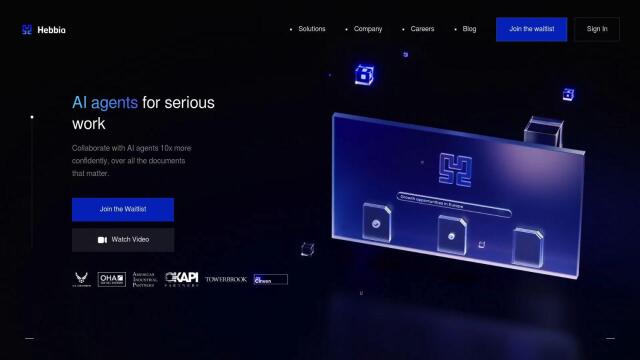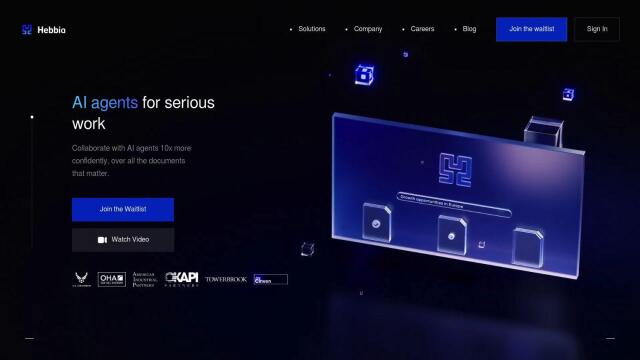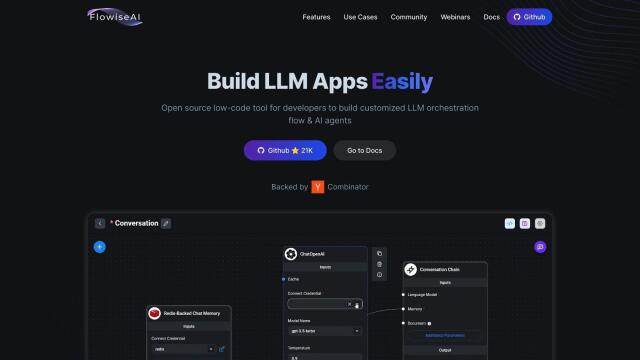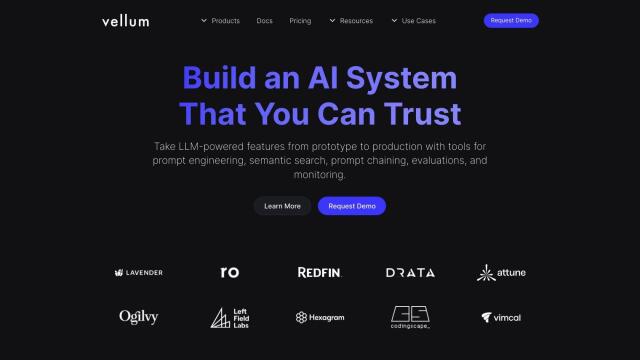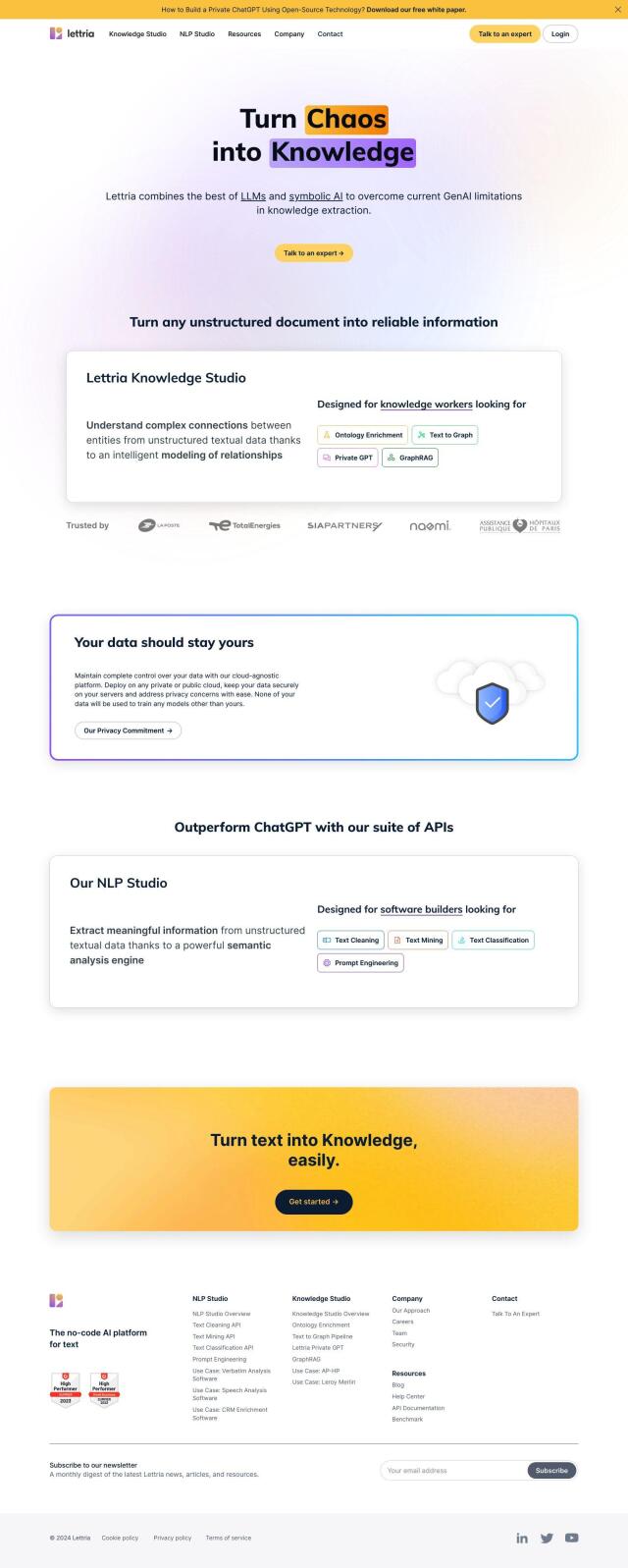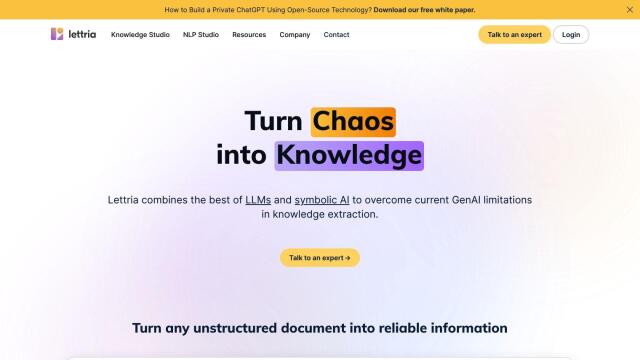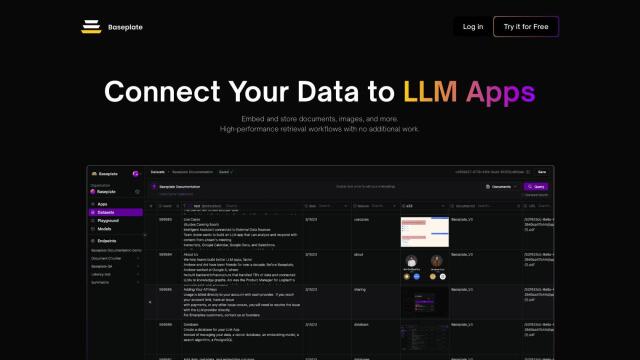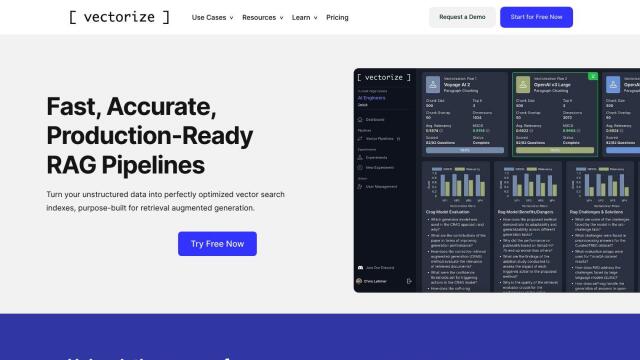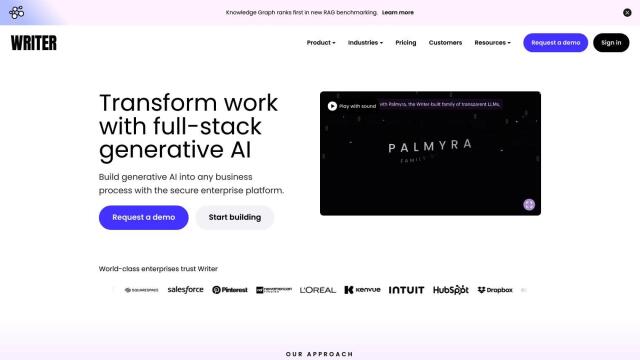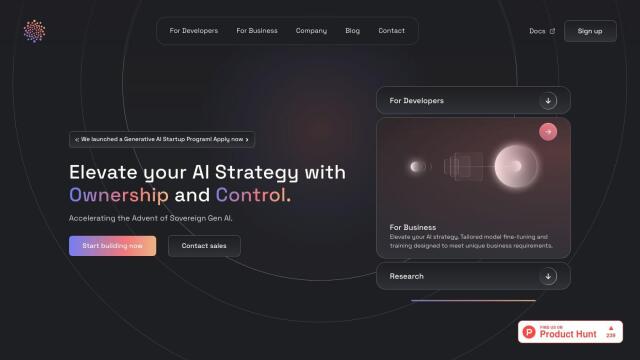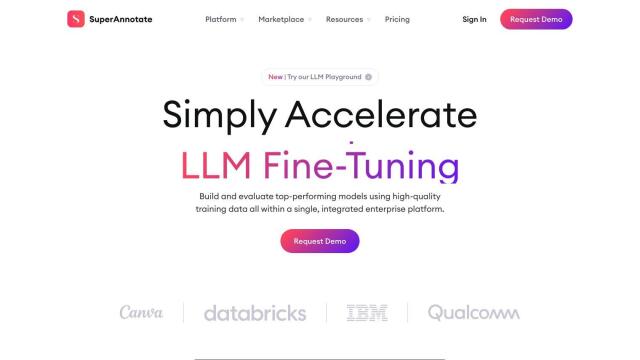Question: Can you recommend a framework that integrates large language models with custom data sources for advanced analytics?
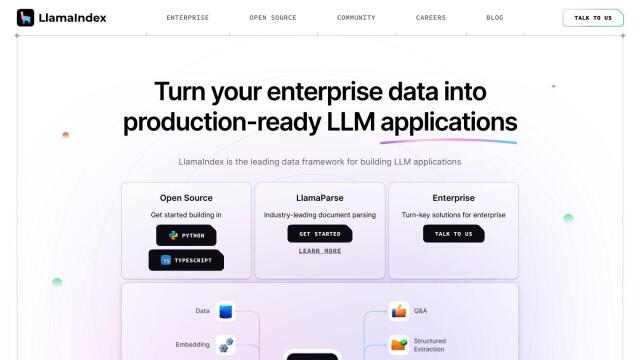
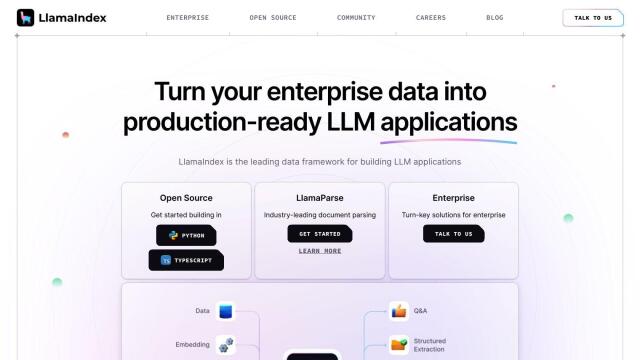
LlamaIndex
If you're looking for a framework that marries large language models with your own data sources for more sophisticated analysis, LlamaIndex is a good option. It lets you connect more than 160 data sources to LLMs, including unstructured and structured data. The framework handles data ingestion, indexing, querying and performance benchmarking, so it's good for financial services analysis, advanced document intelligence and conversational interfaces. LlamaIndex also comes with a rich ecosystem of tools, including a free tier, a paid tier and a more powerful enterprise tier.

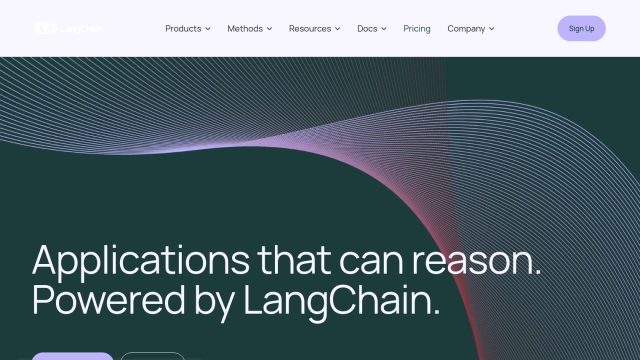
LangChain
Another good option is LangChain, a platform for building context-aware apps using company data and APIs. It spans the full LLM application lifecycle, from creation to deployment, with tools like LangSmith for monitoring performance and LangServe for deploying APIs. LangChain is flexible, letting you integrate many APIs and private sources, so it's a good fit for financial services and FinTech companies trying to optimize operations and offer more personalized products.
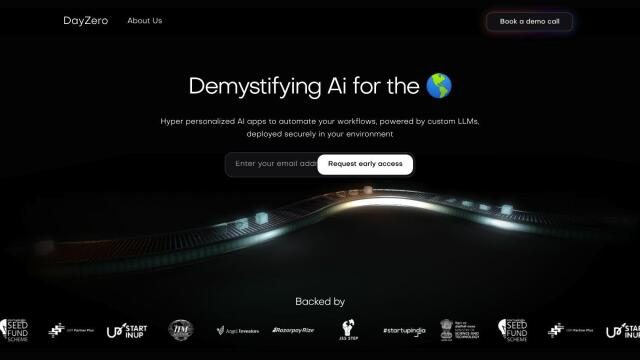
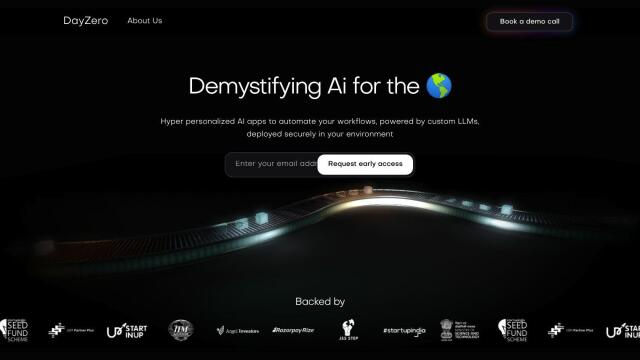
Dayzero
Dayzero is an enterprise AI platform that offers hyper-personalized applications built on custom LLMs. It includes products like Worx for model deployment and maintenance, Altimo for AI assistants and Blox for process automation. With integration with LlamaIndex and support for major inference endpoints, Dayzero is geared for businesses that want to increase productivity and automate workflows in a variety of industries.

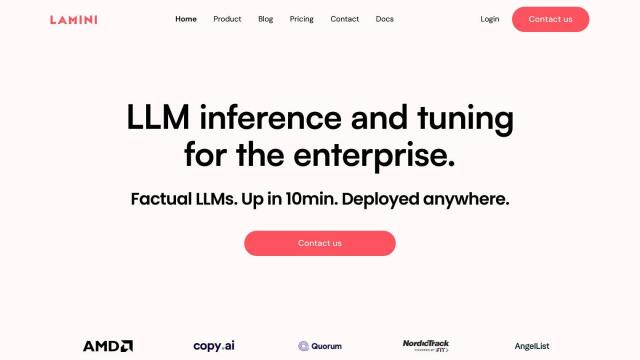
Lamini
If you're looking for a more general-purpose LLM management platform, check out Lamini. It lets software teams develop, manage and deploy LLMs on their own data, with features like memory tuning, deployment to different environments and high-throughput inference. Lamini can be installed on-premise or in the cloud and runs on AMD GPUs, so it scales well for large-scale use, with free and enterprise tiers.
